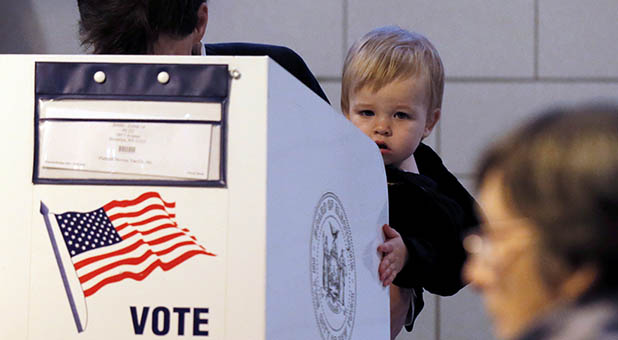17-Year-Olds Are Too Young to Vote
The 26th Amendment to our Constitution guarantees the right to vote for 18-year-olds. It was ratified during the Vietnam War on the theory that when someone is old enough to be drafted into combat, then he is old enough to vote.
Seventeen-year-olds, however, are not old enough to enlist in our military without the consent of their parents. They are too young to get married without the consent of their parents. They are not old enough to rent a car or to buy alcohol. They do not pay property taxes.
More than two-thirds of teenagers do not have a job today, a decline from two decades ago when more than 40 percent of teenagers were employed. Liberals have figured out that this demographic of jobless youth is more likely to vote for liberals than for conservatives.
So to boost his chances in Ohio, Bernie Sanders’ campaign sued to obtain the right for 17-year-olds to vote in the primary for president. The Secretary of State of Ohio had already decided against allowing 17-year-olds to vote in that primary, but the Sanders campaign ran to court to overturn that decision.
An activist state court then ordered Ohio to allow voting by 17-year-olds who would turn 18 in time to vote in the general election in November.
At the founding of our nation, voting rights were generally limited to those who owned land or other forms of property. Our Constitution leaves it up to each state to decide who can vote in elections.
Twenty states now allow 17-year-olds to vote in primaries or caucuses for nominating the president. A 17-year-old is too young to serve on a jury. Aren’t elections just as important as jury trials? I think the same minimum age requirement for juries should be used for elections, too.
Phyllis Schlafly has been a national leader of the conservative movement since the publication of her best-selling 1964 book, A Choice Not An Echo. She has been a leader of the pro-family movement since 1972, when she started her national volunteer organization called Eagle Forum. In a ten-year battle, Mrs. Schlafly led the pro-family movement to victory over the principal legislative goal of the radical feminists, called the Equal Rights Amendment. An articulate and successful opponent of the radical feminist movement, she appears in debate on college campuses more frequently than any other conservative. She was named one of the 100 most important women of the 20th century by the Ladies’ Home Journal.















































